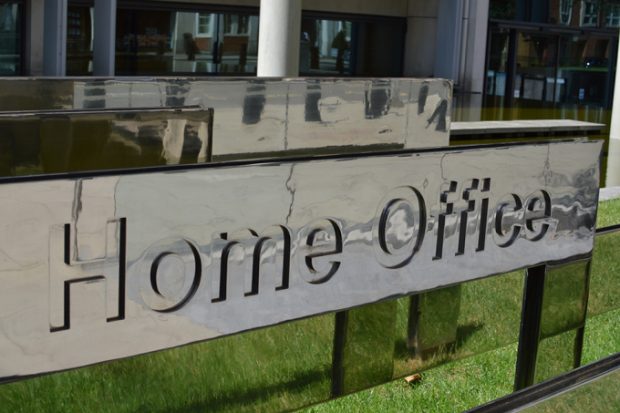
Minister of State for Policing and the Fire Service, Nick Hurd, said:
Today’s statistics show that your chance of being a victim of crime remains low, and the Metropolitan Police’s more recent figures suggest that action to tackle violent crime is having an impact.
Yet too many people are still falling victim to serious violence, which is why we will continue our urgent and unprecedented action to reverse this terrible trend.
We have given police forces additional powers and have this year put more than £1billion extra into policing, including council tax and £100million specifically for those areas worst affected by violent crime.
But law enforcement alone is not the answer which is why our Serious Violence Strategy puts a greater focus on prevention, including by consulting on a proposed new duty to underpin a public health approach to serious violence and investing over £220million in projects to steer young people away from crime.
The fact sheet below sets out the work the Government is undertaking to tackle violent crime.
- The Serious Violence Taskforce, chaired by the Home Secretary, meets regularly to drive delivery of the Serious Violence Strategy. It brings together Ministers, MPs, the Metropolitan Police Commissioner, the London Mayor, senior police leaders and public sector and voluntary sector chief executives.
- Chairing the latest Taskforce yesterday (Wednesday 24 April) the Home Secretary confirmed that the new £1.38m Government-funded social media hub will be fully operational at the end of May. A 17-strong team of police staff and officers will disrupt and remove overt and covert gang-related online content.
- On April 1, the Prime Minister hosted the Serious Youth Violence Summit in Downing Street, bringing together attendees from a diverse range of backgrounds including law enforcement, health, the voluntary sector and education, and young people with experience living in communities impacted by serious violence.
Ahead of the summit the Home Secretary, Sajid Javid, launched a consultation on a new legal duty to ensure public bodies, including hospitals, raise concerns about children at risk of becoming involved in knife crime. - The Government also announced it is empowering at least 3,000 more officers to authorise enhanced stop and search powers, which allow the police to search anyone in a designated area without needing reasonable grounds of suspicion if serious violence in anticipated.
- We recognise the demands facing the police and this year the Government has increased funding by more than £1 billion, including council tax and new serious violence funding. As a result, police and crime commissioners have set out plans to recruit around 3,000 more officers.
- The funding includes an additional £100m to tackle serious violence. This is helping worst affected forces increase their operational activities and enabling the creation of new multi-agency Violence Reduction Units.
- Alongside support for the police, the Home Office continues to focus on early intervention as a key to reducing serious violence. It has appointed the charitable foundation Impetus to manage its £200million Youth Endowment Fund, to help prevent young people being drawn into a life of crime and violence.
- The Serious Violence Strategy, published last April, sets out an ambitious programme of work with 61 commitments for further action. This includes the £22m Early Intervention Youth Fund, through which we have already provided £17.7m funding for 29 projects endorsed by Police and Crime Commissioners.
- A £3.6m NPCC/NCA led National County Lines Coordination Centre was launched on 21 September 2018. Since then it has overseen operations leading to more than 1,100 arrests and the protection of 1,300 individuals.
- In March, the Home Secretary chaired the second Chief Constables' roundtable, aimed at sharing experience and policing strategies for tackling violent crime. The group represents police forces from across the country, particularly areas most impacted by knife crime.
- The Offensive Weapons Bill, which is awaiting Royal Assent, will introduce new offences to help tackle knife crime and violent attacks using acids and other corrosive substances. It will also introduce Knife Crime Prevention Orders, which will prevent vulnerable young people from routinely carrying a knife and getting involved in knife crime.
- Meanwhile a major media campaign, #knife free, targets teenagers to set out the risks of carrying a knife based on real-life stories.
We have published our draft Domestic Abuse Bill and have pledged £100 million in dedicated funding until 2020 to tackle violence against women and girls. - Meanwhile, an independent review of drug misuse, led by Professor Dame Carol Black, will seek to ensure that law enforcement agencies and policy are targeting and preventing the drug-related causes of violent crime effectively.
